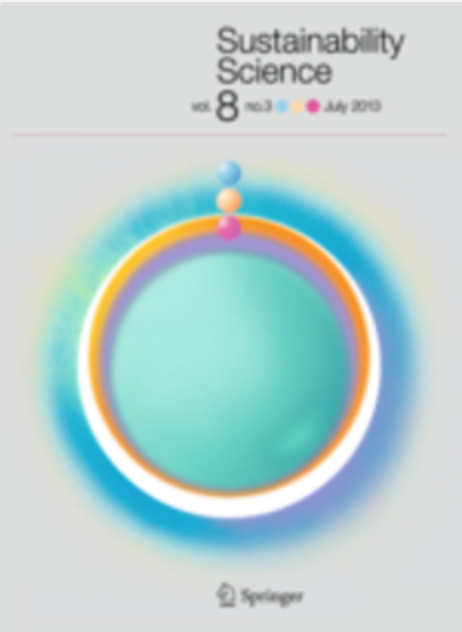
Grounding global environmental assessments through bottom-up futures based on local practices and perspectives
Author(s): Pereira, L., Asrar, G., Bhargava, R., Fisher, L., Hsu, A., Jabbour, J., Nel, J., Selomane, O., Sitas, N., Trisos, C., Ward, J., van den Ende, M., Vervoort, J. & Weinfurter, A.Link to CST author(s): Dr. Laura Pereira, Dr. Nadia Sitas, Dr. Odirilwe Selomane
Publication: Sustainability Science
Year: 2021
Full reference: Pereira, L., Asrar, G., Bhargava, R., Fisher, L., Hsu, A., Jabbour, J., Nel, J., Selomane, O., Sitas, N., Trisos, C., Ward, J., van den Ende, M., Vervoort, J. & Weinfurter, A. (2021). Grounding global environmental assessments through bottom-up futures based on local practices and perspectives. Sustainability Science. 10.1007/s11625-021-01013-x.
https://www.researchgate.net/publication/353889234_Grounding_global_environmental_assessments_through_bottom-up_futures_based_on_local_practices_and_perspectives
Summary
Future scenarios and pathways of potential development trajectories are powerful tools to assist with decision-making to address many sustainability challenges. Such scenarios play a major role in global environmental assessments (GEAs). Currently, however, scenarios in GEAs are mostly developed at the global level by experts and researchers, and locally imagined, bottom-up scenarios do not play a role in such assessments. In this paper, we argue that addressing future sustainability challenges for achieving more equitable development in GEAs requires a more explicit role for bottom-up inspired futures. To this end, this paper employs an innovative global assessment framework for exploring alternative futures that are grounded in local realities and existing practical actions, and that can be appropriately scaled to the required decision-making level. This framework was applied in the context of the UN’s Global Environment Outlook 6, a major example of a GEA. We developed novel methods for synthesizing insights from a wide range of local practices and perspectives into global futures. We collected information from crowdsourcing platforms, outcomes of participatory workshops in different regions of the world, and an assessment of reported regional outlooks. We analysed these according to a framework also used by an integrated assessment model in the same GEA. We conclude that bottom-up approaches to identify and assess transformative solutions that envision future pathways towards greater sustainability significantly strengthen current GEA scenario-development approaches. They provide decision makers with required actionable information based on tangible synergistic solutions that have been tested on the ground. This work has revealed that there are significant opportunities for the integration of bottom-up knowledge and insights into GEAs, to make such assessments more salient and valuable to decision makers.

